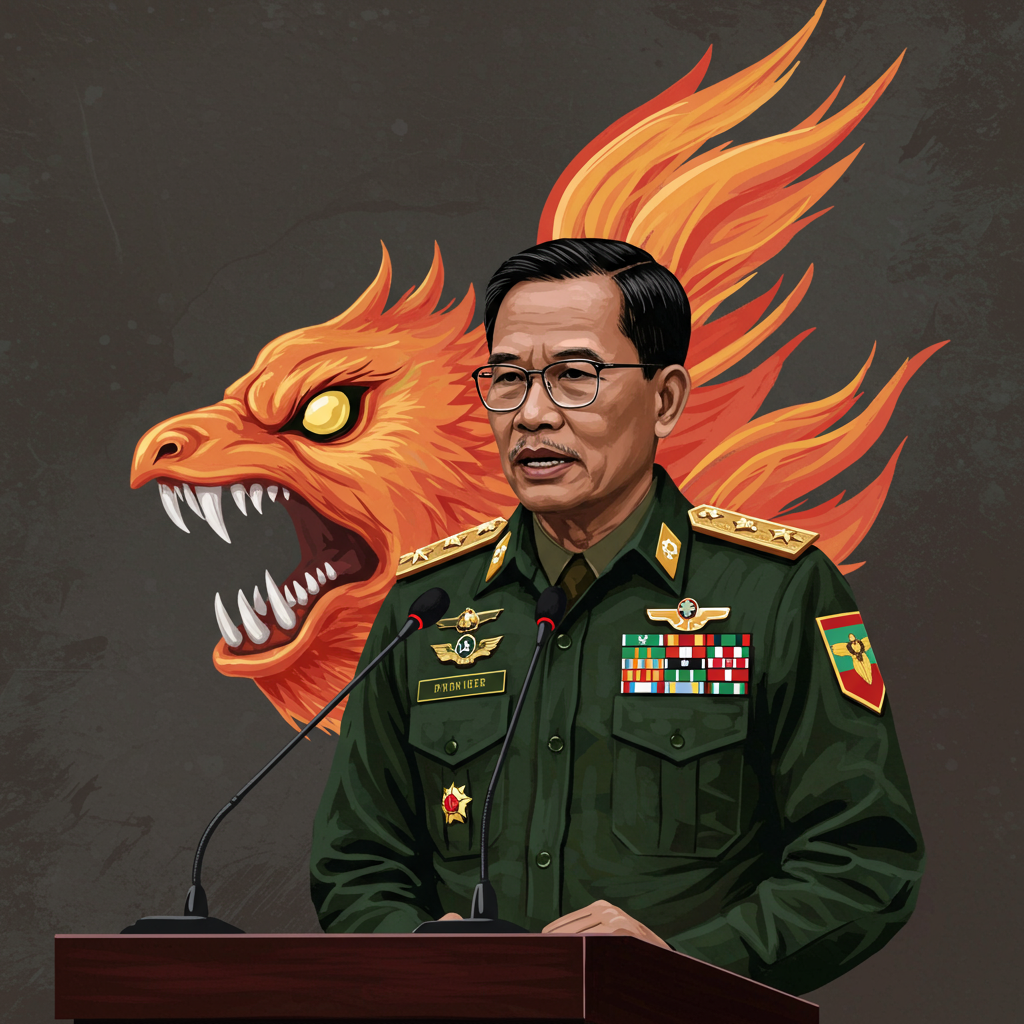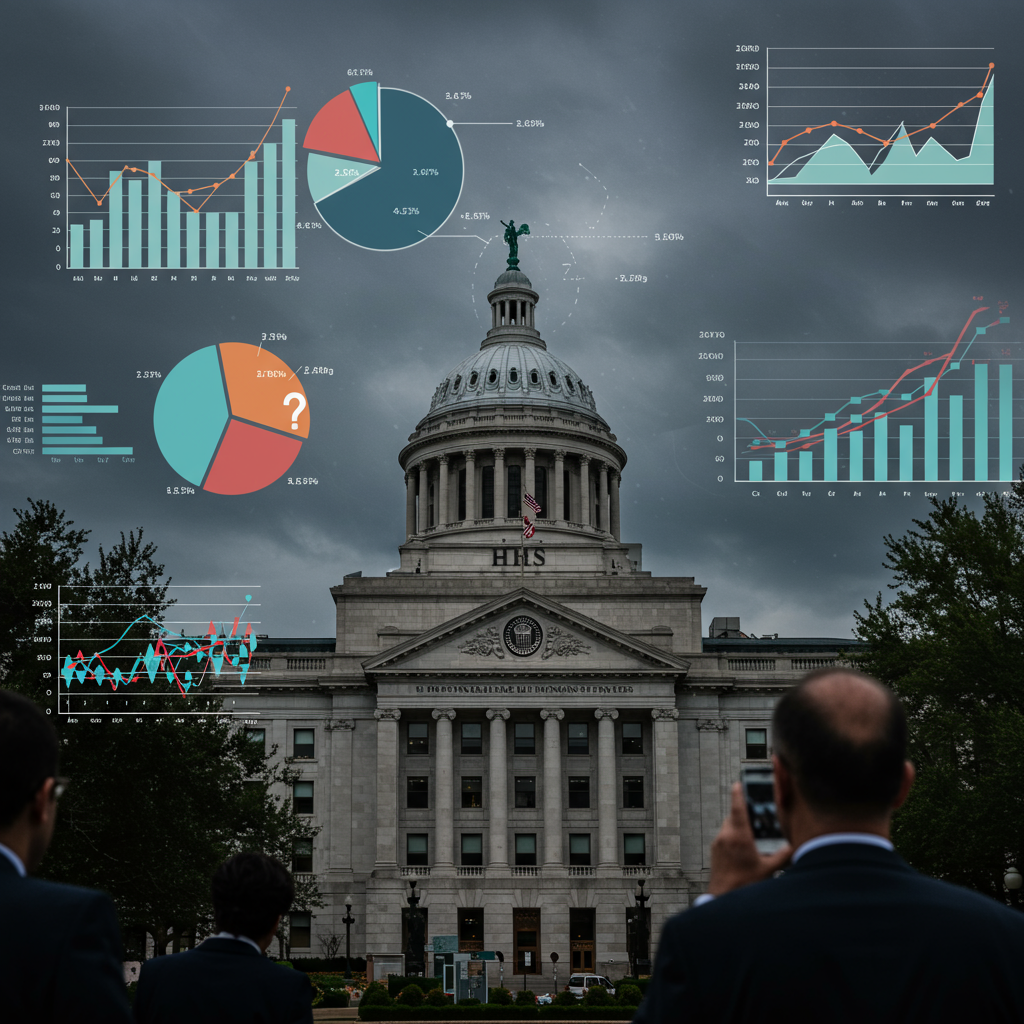Myanmar’s military government has recently announced the cessation of a nationwide state of emergency, framing it as a crucial step towards holding multiparty Myanmar elections later this year. This declaration, made by spokesperson Zaw Min Tun, arrives more than four years after the military’s 2021 coup. That military takeover deposed Aung San Suu Kyi’s civilian government and ignited a brutal civil war that has claimed thousands of lives across the country. However, this seemingly democratic overture is immediately complicated by contradictory actions and widespread skepticism from critics and international observers, who largely view the upcoming polls as a strategic maneuver to consolidate the junta’s power under General Min Aung Hlaing.
Unpacking the Emergency Rule and Its “End”
The state of emergency was first imposed on February 1, 2021, when the military seized power, claiming unsubstantiated fraud in the 2020 elections. These elections had seen Aung San Suu Kyi’s National League for Democracy (NLD) win by a landslide. The emergency decree granted Senior General Min Aung Hlaing, then head of the ruling State Administration Council, sweeping legislative, judicial, and executive powers. For four and a half years, this decree provided the military with complete control over all government functions.
On July 31, 2025, military government spokesperson Zaw Min Tun stated that the state of emergency was abolished. He claimed this was “in order for the country to hold elections on the path to a multi-party democracy.” This announcement came as the last of seven consecutive six-month emergency-rule decrees was set to expire. Commander-in-chief Min Aung Hlaing reportedly described this shift as the completion of the “first chapter” and the beginning of a “second chapter” for Myanmar.
The Immediate Contradiction: Martial Law Returns
Just hours after the military’s announcement, Myanmar state TV reported a startling development. The country would impose martial law and a state of emergency in nine of the nation’s 14 regions and states. This move, citing ongoing armed violence and rebellion, fundamentally undermines the narrative of a nationwide de-escalation of emergency rule. Analysts quickly pointed out that this isn’t a genuine end to military control. Instead, it’s a strategic rearrangement, maintaining the junta’s firm grip on power under a new guise.
This dual action highlights the precarious security situation across Myanmar. It also underscores the military’s determination to control the narrative surrounding the elections. The regime is attempting to project an image of transitioning to democracy while simultaneously suppressing dissent and managing widespread armed resistance.
The Architect of Power: General Min Aung Hlaing
At the heart of this complex political maneuvering is General Min Aung Hlaing, the armed forces chief who led the 2021 coup. While an order he signed officially canceled the emergency rule, seemingly “returning” power to the head of state, the reality is far different. Min Aung Hlaing concurrently holds the position of acting president. This effectively makes him the head of state. This arrangement ensures he retains supreme authority to determine when Myanmar elections will be held and which parties are permitted to participate.
Under the new restructuring, Min Aung Hlaing has relinquished his posts as chief of the now-dissolved State Administration Council and the prime minister role. However, he remains Myanmar’s acting president, maintaining central authority with increased influence. The National Defense and Security Council (NDSC), a nominally constitutional body but effectively controlled by the military, has absorbed the functions of dissolved administrative bodies. As acting president, Min Aung Hlaing is a key member of the NDSC. Furthermore, state-run MRTV reported that the NDSC formed a new entity, the State Security and Peace Commission, which Min Aung Hlaing will also head, further cementing his power.
A Controversial Leadership Role
General Min Aung Hlaing will also lead the 11-member commission tasked with supervising the upcoming elections. He has publicly positioned these polls as a potential “off-ramp” to the ongoing civil conflict. However, Min Aung Hlaing is wanted by the International Criminal Court for alleged crimes against humanity against the Muslim Rohingya minority, adding another layer of controversy to his leadership. His continued dominance over the political landscape casts a long shadow over the credibility of any electoral process he oversees.
The Controversial Path to Elections
The planned elections are scheduled for December 2025 and January 2026, reportedly due to security concerns. Political parties are currently being registered, and training sessions for electronic voting machines have already taken place. However, no exact date for the election has been officially announced.
Widespread Skepticism and Boycott Threats
Despite the junta’s rhetoric, critics and opposition groups widely question the legitimacy of the upcoming polls. Opposition factions, including former lawmakers ousted in the coup, have pledged to boycott the elections. A United Nations expert last month dismissed the process as “a fraud” designed solely to legitimize the military’s continued rule. Monitoring groups also share this profound skepticism. The National Unity Government (NUG), which identifies as the legitimate government, along with powerful ethnic armed groups, have vowed to deter the election. An NUG spokesperson, Nay Phone Latt, called the military’s actions a preparatory step for a “fake” election, affirming that revolutionary forces would continue their fight until their goals are achieved.
Analysts widely predict that Min Aung Hlaing intends to retain a prominent role, either as President or armed forces chief. This strategy would consolidate his power and extend his de facto rule beyond the election, regardless of its outcome. Independent analyst David Mathieson described the junta’s actions as merely “rearranging the same pieces and calling the regime a new name,” asserting that “nothing will change in the near term.”
The Shadow of Civil War
The military’s takeover in 2021 was met with widespread peaceful protests. These were violently suppressed, leading to armed resistance across the country and plunging Myanmar into a full-scale civil war. The conflict remains a significant obstacle to any genuine democratic transition.
According to the independent Assistance Association for Political Prisoners (though figures are disputed by the military government), 7,013 people have been killed and 29,471 arrested by security forces since the coup. Amnesty International reports over 6,000 deaths and more than 20,000 civilian detentions. The war has also exacted a heavy toll on the junta’s forces; an RFA analysis indicated over 24,000 junta troops killed and more than 12,000 wounded by February 2025.
Opponents and independent analysts estimate the army controls less than half the country. While it tenaciously holds much of central Myanmar, including the capital Naypyidaw, it faces persistent resistance from established ethnic minority armies and newly formed armed groups that have gained control of significant territory. The military has even resorted to conscripting men under age 35, sometimes forcibly, to replenish its depleted ranks. Analysts anticipate that rebel groups will escalate offensives around the election period to demonstrate their opposition.
The electoral environment is further complicated by recent legislative changes. On July 30, 2025, the military government enacted a new law imposing prison sentences of up to 10 years for any speech or protest deemed to “destroy a part of the electoral process,” signaling a harsh crackdown on dissent. Furthermore, a census conducted last year in preparation for the election revealed significant data collection challenges. Provisional results indicated that data from 19 million out of Myanmar’s 51 million people could not be collected. This shortfall was attributed to “significant security constraints,” underscoring the limited reach of the election amid the civil war.
International Reactions and Preparations
Internationally, responses have been cautious. A Chinese Ministry of Foreign Affairs spokesman has expressed support for Myanmar’s various parties and factions. Beijing hopes they will resolve differences through political means under the constitutional and legal framework. This statement reflects China’s preference for stability in its neighbor.
Domestically, preparations continue despite the overwhelming skepticism. Beyond political party registration and electronic voting machine training, the junta has even begun offering cash rewards to individuals willing to surrender their arms and “return to the legal fold” ahead of the vote, attempting to mitigate armed resistance.
The military’s strategic maneuvers, including the nominal end of the state of emergency combined with expanded martial law, highlight a sophisticated attempt to legitimize its continued rule. However, the deep-seated civil conflict, the military’s history of violence, and the international community’s skepticism present significant challenges to the credibility and outcome of the upcoming Myanmar elections. The “second chapter” for Myanmar appears to be a continuation of military control, cleverly rebranded for a world watching closely.
Frequently Asked Questions
What is the significance of Myanmar ending its state of emergency?
Myanmar’s military government announced the end of its state of emergency, which had been in place since the 2021 coup. This move is presented as a step towards holding multiparty elections. However, the significance is widely debated, as it was immediately followed by the imposition of martial law and a new state of emergency in other regions. Critics view it primarily as a cosmetic change designed to legitimize the military’s ongoing rule and consolidate power ahead of elections.
How does General Min Aung Hlaing maintain control despite these changes?
General Min Aung Hlaing, the leader of the 2021 coup, maintains paramount control by simultaneously holding the position of acting president. This makes him the head of state and gives him supreme authority over the electoral process. While he ostensibly gave up some titles, he now leads the National Defense and Security Council (NDSC) and a newly formed State Security and Peace Commission. He will also head the 11-member commission supervising the upcoming elections, ensuring his continued dominance over Myanmar’s political landscape.
Why are the upcoming Myanmar elections considered controversial?
The upcoming Myanmar elections are highly controversial for several reasons. Opposition groups, including former lawmakers ousted in the coup, plan to boycott the polls. A United Nations expert has dismissed them as “a fraud” designed to legitimize military rule, not establish democracy. The elections occur amidst a brutal civil war where the military controls less than half the country. Furthermore, Min Aung Hlaing, who is wanted by the International Criminal Court, will oversee the process and is expected to retain power regardless of the outcome.




